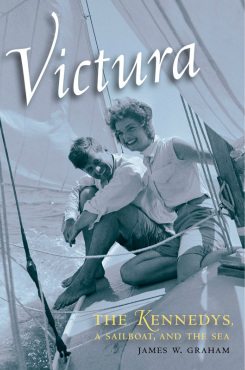"Having an outdoor privy signified a level of decency above those who simply relieved themselves in the woods or fields. Indoor light was scarce and precious; families made their own candles, smelly and smoky, from animal tallow. A single fireplace provided all the cooking and heating for a common household. During winter, everybody slept in the room with the fire, several in each bed. Privacy for married couples was a luxury. ...
"It was a young society: The census listed the median age as sixteen, and only one person in eight as over forty-three years old. Women bore children in agony and danger, making their life expectancy, unlike today, slightly shorter than that of men. Once born, infants often succumbed to diseases like diphtheria, scarlet fever, and whooping cough. One-third of white children and over half of black children died before reaching adulthood. The women had enough babies to beat these grim odds. To help them through labor, neighbors and trained midwives attended them. Doctors were in short supply, hospitals almost unknown. This proved a blessing in disguise, for physicians then did as much harm as good, and hospitals incubated infection. The upside of rural isolation was that epidemics did not spread easily."
What Hath God Wrought: The Transformation of America, 1815-1848 (Oxford History of the United States) 2007, pp. 32,37







![10155528_636931453043986_2785019781899499241_n[1] 10155528_636931453043986_2785019781899499241_n[1]](https://blogger.googleusercontent.com/img/b/R29vZ2xl/AVvXsEhAcyDp4ra0oxYWkUPfa0izXrA2K2TwZK7Ft9tYWkNouUgiH-Nz-Ei2LGBY73kzgBxQsDSLMF9vFMRrtO1_BqiMHEPgxxIoBZV2Xnna8Z39ki9rTGKXyhv3elJ_FXU-r6WLmpooGA/?imgmax=800)
![10429450_686152401459545_4396661818743803430_n[1] 10429450_686152401459545_4396661818743803430_n[1]](https://blogger.googleusercontent.com/img/b/R29vZ2xl/AVvXsEiKpgA8g-ApZsn09tHT-cisqRENBAm2ng1Z1CAi2Q24MNSwBo4kEjgp8WOi4Jt78HLzsu3v6gfWoRvTBgZXXv3XzvTOIhXX0ciAPy6Ra-CBvyJjcckecR_DKYQGxEmTBV9x7U73gA/?imgmax=800)
![10563167_814491935248193_5771294388338015051_n[2] 10563167_814491935248193_5771294388338015051_n[2]](https://blogger.googleusercontent.com/img/b/R29vZ2xl/AVvXsEjSsgPpP3W6oLF_rj0O-HQB9JzJdCplW-Js0lYOzC2LB-ig8U9SXsxldAR8imo9qPPTZRzF6akhneEwky5tNsmSGujV7WUrsw03V5JfxfApgxW-26IE1MZ1jwKoNL8-Py4BE-wipg/?imgmax=800)
































